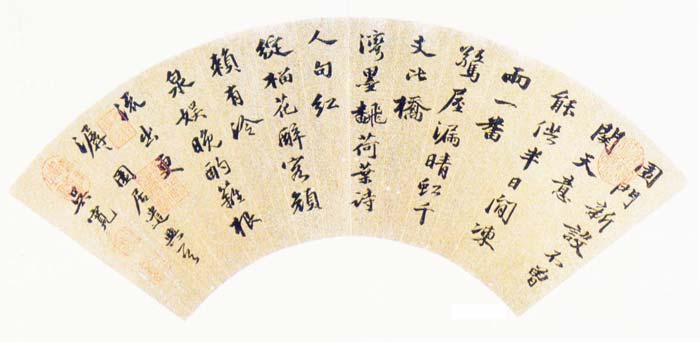Wu Kuan (1435-1504) Ming Dynasty poet and essayist. The original word is Bo, the number is 匏庵. A native of Changzhou (now Suzhou, Jiangsu). In the eighth year of Emperor Xianzong of the Ming Dynasty (1472), he won the first place in the examination and court examination. Once served in the East Palace of Xiaozong, Xiaozong ascended the throne, moved to the left concubine, pre-edited "Xianzong Records", entered Shao Zhan and studied for a bachelor degree, and later promoted to the right servant of the official department and the Shangshu of the Ministry of Rites. Wu Kuan's style is noble and clean. Posthumous posthumous posthumous posthumous posthumous appointment. Young and strong, he is eager to learn, and he reads everything in books. You Xi's "Zuo Zhuan", "Han Shu", Tang and Song essays, and most like Su Shi's articles. He has a solid foundation in learning, his poems are peaceful and elegant, and he has classics. "Ming Poetry Critic" said: "Wen Dingli swept away the surging, elegant and light, poems are like willows and will be exposed to the wind, and they are gentle and unrestrained; it is also like a scholarly discussing world affairs, and the true colors are self-explanatory."
Wu Kuan also works on calligraphy, and the book also learns from Su Dongpo. This running script is rich in ink, strong in ink, and stable in workmanship.

Wu Kuan "Fan Noodles in Regular Script" Collection of the National Palace Museum, Taipei








